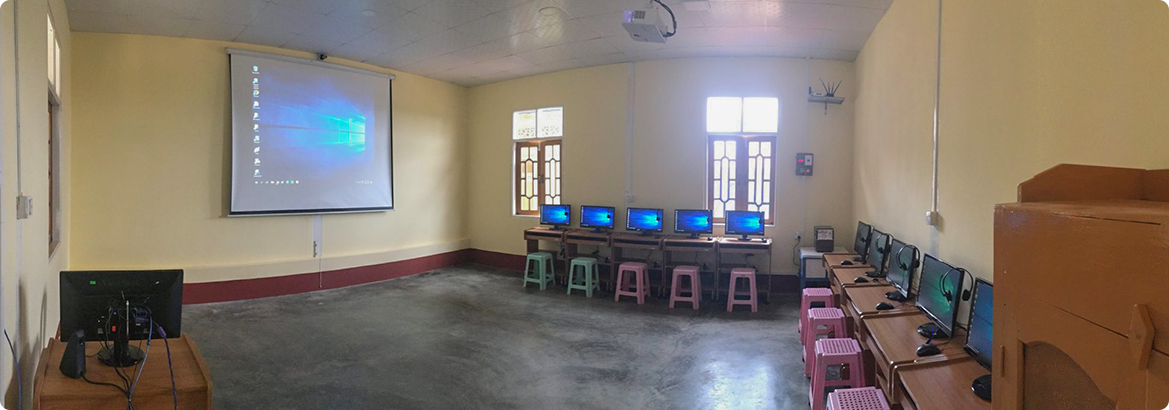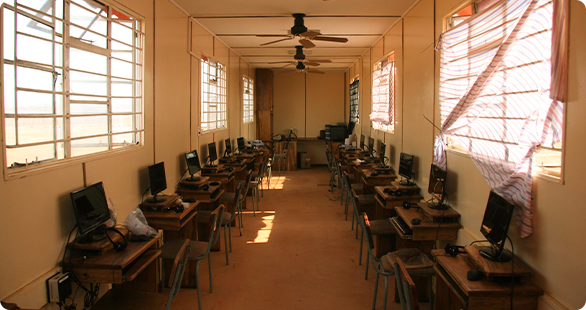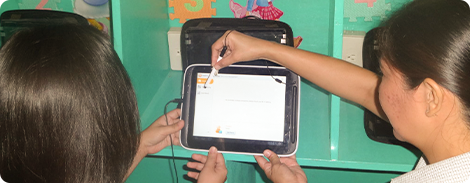NGO WORK
Bernd strongly believes that children should be provided the same educational opportunities regardless of where they live. As such, he is always looking at supporting NGO’s through pro-bono work or at reduced rates. In particular, Bernd has advised organizations and governments on how to effectively utilize technology to bridge the digital divide. He has been involved in ICT (Information Communication Technology) for development for a decade. As part of the Intel Word Ahead and Intel Education programs, he was instrumental in designing solutions for rural and remote area. He designed and implemented solar powered computer labs in Zambia and Philippines. He was also the chief architect in a joint project with USAID to bring internet access using wireless and satellite technology to a remote part of Vietnam.
Projects
01. DIGITAL REMOTE LEARNING, MYANMAR

- Monastic Education Development Group (MEDG), a NGO that supports the improvement of monastic education across the country developed. In 2017 MEDG launched a digital education program to reach underprivileged children in remote areas.
- chools are equipped with a ‘tech classroom’ that includes video conferencing facilities and a 3G connection. Several days children enjoy live lessons broadcast in the tech classrooms which are. The live lessons are virtually delivered via a studio based at Phaung Daw Oo Monastic School by studio teachers who are well-trained for non-formal education program.
- Bernd worked closely with the MEDG tech team to support the design and pilot rollout of the project which has grown to 40 schools and has so far reached 1,700 children.
- Learning access through digital education project implemented”


- Monastic Education Development Group (MEDG), a NGO that supports the improvement of monastic education across the country developed. In 2017 MEDG launched a digital education program to reach underprivileged children in remote areas.
- chools are equipped with a ‘tech classroom’ that includes video conferencing facilities and a 3G connection. Several days children enjoy live lessons broadcast in the tech classrooms which are. The live lessons are virtually delivered via a studio based at Phaung Daw Oo Monastic School by studio teachers who are well-trained for non-formal education program.
- Bernd worked closely with the MEDG tech team to support the design and pilot rollout of the project which has grown to 40 schools and has so far reached 1,700 children.
- Learning access through digital education project implemented”


- The Marilog Central Elementary School located in the province of Mindanao, Philippines is home to 650 students many of whom are indigenous people. The school did not have access to grid electricity, and no access to modern learning technology.
- In 2010 Intel joined forces with Alliance for Mindanao Off-grid Renewable Energy Program (AMORE). Bernd designed a solar powered computer lab. Three years later Bernd implemented a content server solution and introduced 25 tablets.
- Since then the school has seen student attendance rates and graduation increase. The principal attributes that in part to the access of technology and the teacher training that Intel provided.
- Technology has become a tool to facilitate teacher professional development – enhancing content knowledge and teaching strategies to ensure effective learning, both for the teachers, and the most important person in the school – the pupil.” Zenaida Ayop, School Head, MCES
- “Transforming Education in Rural Philippines”

